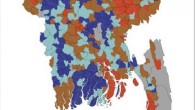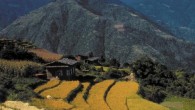Tag Archives: rice
The genebanks of the Consultative Group on International Agricultural Research (CGIAR) are often portrayed in the popular press as villains, the archetypical biopirates who steal huge amounts of biodiversity from their rightful owners and ride roughshod over the rights of poor farmers. At the same time the genebanks are often portrayed as heroes, the saviors of biodiversity...
Perhaps surprisingly, farmers do not perform most of the labor on rice farms in South and Southeast Asia. In the Philippines and on the Indonesian island of Java, for example, rice farm families work on average less than 40 days per year on the fundamental tasks of growing rice. If both husband and wife share this labor, each averages 13 hours per month. This is good...
Discussion of the system of rice intensification (SRI) is unfortunate because it implies SRI merits serious consideration. SRI does not deserve such attention. A multinational team has shown from both theoretical evaluations and a number of experimental tests that SRI offers no yield advantage. Significantly, these results by Sheehy et al. were published in Field Crops...
The system of rice intensification (SRI) was developed in Madagascar 20 years ago by Fr. Henri de Laulanié of the Society of Jesus after 2 decades of working with farmers to raise their rice production without depending on external inputs. Today, SRI is gaining acceptance around the world. Practiced only in Madagascar until 1999, it has since demonstrated its environmentally...













